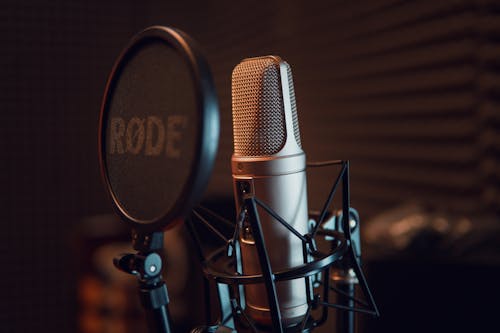Music has been used to influence and shape cultures throughout history. From the Civil Rights Movement to the Arab Spring, music has been used to rally the masses and promote social change. In this blog post, we will explore the role of music in politics and how it can be used to influence society. We will look at the role of music in politics, the use of music to unite people, and the history of music and politics. By the end of this post, you should have a better understanding of how music can be used to inspire and motivate people towards political action.
Related Info: Music Producer Peter Yarrow
What Is The Role Of Music In Politics?
Music has a long and storied history as a tool for conveying powerful messages of progress and politics. From Martin Luther King Jr.’s I Have a Dream speech to Bono’s plea for global poverty relief, music has been used to bring attention to important issues. In many ways, music is like a language – it can be used to spread awareness, spark conversation and mobilize people to action.
Different genres of music often have distinct roles in social movements. For example, gospel music is often used in African-American communities as a way to express solidarity with one another and promote positive self-image. Similarly, folk or acoustic music is often associated with social justice movements such as the Occupy movement – protesters would gather together to listen to acoustic guitar-led performances while occupying public spaces.
The Use Of Music To Unite People
Music has long been known as a powerful tool for uniting people across cultures and borders. Whether it’s bringing people together to celebrate a common goal or protesting against injustice, music has always had the power to change the world. Below, we’ll take a look at some of the ways that music has been used historically to unite people and how it can be used in the present day.
First and foremost, music is often used as a vehicle for political statements. This is evident in both contemporary and historical examples where songs have been written about political events or sung by artists in support of certain causes. For example, Katy Perry’s song Roar is about standing up to animal cruelty, while Neil Young’s The Universal Soldier speaks out against American imperialism.
Finally, there are always risks associated with incorporating political messages into songs lyrics or performance art performances themselves. If done incorrectly, these messages could be misinterpreted or even offensive to some listeners. Asking ethical questions such as who gets permission from whom before incorporating any type of musical message into one’s work is always prudent when considering such risks..
History Of Music And Politics
Since ancient Greece, music has been political. Artists have used it to draw attention to social, political, and economic issues for centuries. In fact, its influence on society can be seen in the way it inspires people to act. For example, listening to music while protesting can help encourage others to join in and make their voices heard. Music’s impact on culture cannot be denied – it has a powerful ability to drive change. However, its relationship with politics continues to evolve in modern times.
Read More Article: The Business of Music: The Music Industry and Its Challenges
So whether you’re looking for inspiration or want to learn more about how music affects politics, take a look at our blog! It contains all the information you need on this fascinating topic.
How Musicians Engaged With Politics Throughout History
Music has always been a powerful tool for voicing social and political issues. Throughout history, musicians have used their music to express dissent and to promote change. In this section, we’ll be examining some of the key examples of how music has played a role in shaping public opinion and advancing social justice.
For example, consider the 1960s. At that time, there was a lot of unrest in the United States due to protests against civil rights and economic inequality. In response to this unrest, many musicians began using their music as a platform for expressing their dissent. They performed at rallies and events, created songs about political topics, and voiced their support for social justice on stage. This activism had an impact – it helped to raise awareness about political issues and encouraged people to speak out on these issues.
As you can see, music has always been an important tool for protesting injustice and promoting social reform. In light of recent events such as the 2016 US presidential election campaign trail, it’s important that we continue to discuss the ethical implications of using music as a form of protest. For example, does using popular songs as platforms for advocating political causes violate copyright laws? Are artists obligatedto speak out on public opinion when they know that doing so could result in lost revenue? These are complex questions that deserve attention from both musiciansand policymakers alike!
Conclusion
Music has been a powerful tool for expressing political and social issues since ancient times. It has always had a unique capacity to bring people together and rally them to make changes in the world. In this blog post we have explored the role of music in politics, how it can be used to unite people, and the history of music and politics.



